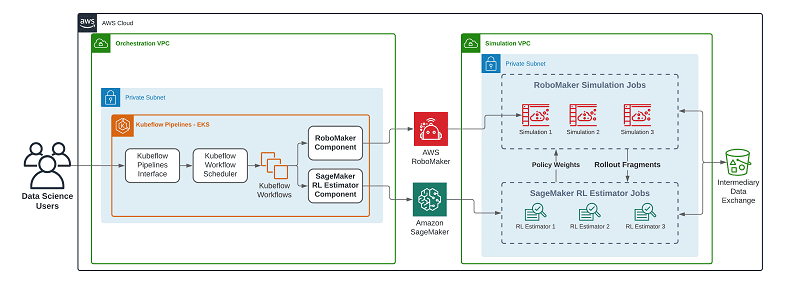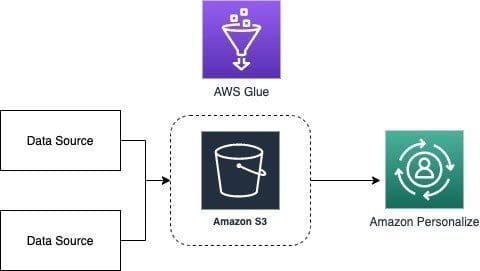Favorite There are two end-member camps in the KM world – those who think KM is something revolutionary which is going to change the world, and those who think its nothing new, and nothing really different. I have a foot in each camp Let me explain why. Knowledge management is
Read More
 Shared by Nick Milton March 5, 2021
Shared by Nick Milton March 5, 2021
Favorite This blog post was co-authored by AWS and Max Kelsen. Max Kelsen is one of Australia’s leading Artificial Intelligence (AI) and Machine Learning (ML) solutions businesses. The company delivers innovation, directly linked to the generation of business value and competitive advantage to customers in Australia and globally, including Fortune
Read More
 Shared by AWS Machine Learning March 4, 2021
Shared by AWS Machine Learning March 4, 2021
Favorite Amazon Web Services (AWS) offers a rich stack of artificial intelligence (AI) and machine learning (ML) services that help automate several components of the customer service industry. Amazon Polly, an AI generated text-to-speech service, enables you to automate and scale your interactive voice solutions, helping to improve productivity and
Read More
 Shared by AWS Machine Learning March 4, 2021
Shared by AWS Machine Learning March 4, 2021
Favorite In 2019, AWS unveiled Amazon SageMaker Debugger, a SageMaker capability that enables you to automatically detect a variety of issues that may arise while a model is being trained. SageMaker Debugger captures model state data at specified intervals during a training job. With this data, SageMaker Debugger can detect
Read More
 Shared by AWS Machine Learning March 4, 2021
Shared by AWS Machine Learning March 4, 2021
Favorite Open-source workflow managers are popular because they make it easy to orchestrate machine learning (ML) jobs for productions. Taking models into productions following a GitOps pattern is best managed by a container-friendly workflow manager, also known as MLOps. Kubeflow Pipelines (KFP) is one of the Kubernetes-based workflow managers used
Read More
 Shared by AWS Machine Learning March 3, 2021
Shared by AWS Machine Learning March 3, 2021
Favorite You have Amazon Simple Storage Service (Amazon S3) buckets full of files containing incoming customer chats, product reviews, and social media feeds, in many languages. Your task is to identify the products that people are talking about, determine if they’re expressing happy thoughts or sad thoughts, translate their comments
Read More
 Shared by AWS Machine Learning February 27, 2021
Shared by AWS Machine Learning February 27, 2021
Favorite One of the major differences between a Knowledge Management Toolbox and a Knowledge Management Framework is that in a framework, the components are joined up. Image from wikimedia commons I have blogged before about the evolution in KM thinking from tool, to toolkit, to framework. I have argued that
Read More
 Shared by Nick Milton February 26, 2021
Shared by Nick Milton February 26, 2021
Favorite In our Community Showcase, Amazon Web Services (AWS) highlights projects created by AWS Heroes and AWS Community Builders. We worked with AWS Machine Learning (ML) Heroes and AWS ML Community Builders to bring to life projects and use cases that detect custom objects with Amazon Rekognition Custom Labels. The
Read More
 Shared by AWS Machine Learning February 26, 2021
Shared by AWS Machine Learning February 26, 2021
Favorite Data can be used in a variety of ways to satisfy the needs of different business units, such as marketing, sales, or product. In this post, we focus on using data to create personalized recommendations to improve end-user engagement. Most ecommerce applications consume a huge amount of customer data
Read More
 Shared by AWS Machine Learning February 26, 2021
Shared by AWS Machine Learning February 26, 2021
Favorite Even in this digital age where more and more companies are moving to the cloud and using machine learning (ML) or technology to improve business processes, we still see a vast number of companies reach out and ask about processing documents, especially documents with handwriting. We see employment forms,
Read More
 Shared by AWS Machine Learning February 25, 2021
Shared by AWS Machine Learning February 25, 2021

![]() Shared by Nick Milton March 5, 2021
Shared by Nick Milton March 5, 2021







